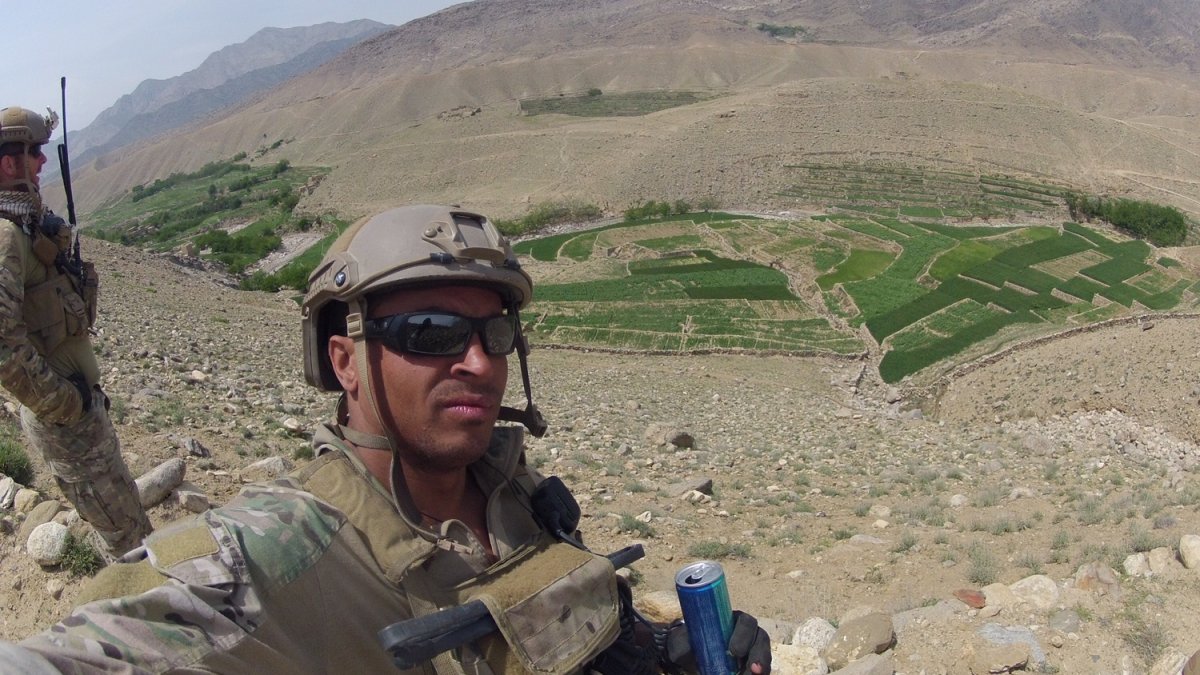Bronze Stars, White Coat
Despite years of strenuous military commitments, Green Beret medic Curtis Carr was present for the births of both of his sons.

In September 2014, Curtis Carr was at home, in Whispering Pines, N.C., on a break between special forces combat deployments in Afghanistan. His wife, Suzi, a nurse practitioner, was about to give birth to their second son, Augustus.
As a Green Beret medic, or 18-Delta, it was unusual for Curtis to be home. Military commitments forced him to be away for so much of the three years he and Suzi had been married and the two years since they’d had their first son, Grayson.
“As a special forces guy, and with all the extra training I’d done as a medic and a dive-company member, I was home only a quarter of the year,” says Curtis, now a second-year student in the UNC School of Medicine’s physician assistant program and a member of the program’s inaugural class. “It was hard on all of us.”
It was also dangerous for Curtis and his special forces unit. Deployments in Afghanistan included continuous conflict with Taliban forces in the mountain regions near Kabul. In total, he was involved in more than 120 firefights. The experiences – and his actions during them and throughout his deployments – earned him two Bronze Stars. Training and requalification for his military role, meanwhile, required him to take special forces combat diver and dive medical technician courses. Every time he trained or requalified, he was one mistake away from an arterial gas embolism or decompression sickness and he could never rule out the possibility of an encounter with an ocean predator or the potential for unpredictable weather conditions while deep in seawater.
Despite years of strenuous military commitments, he was present for the births of both of his sons.
“Being a father is the most important part of my life,” he says. “My father was there for me and my brother, so I understand how important it is to be around. I wouldn’t be where I am today without that support.”
Shortly after Curtis’ son, Augustus, was born that September, the newborn was having trouble breathing and was later rushed to the NICU, where he would spend the next week under close watch by NICU caregivers. The experience changed Curtis’ life.
“The providers allowed us to be there with him while they cared for him,” he recalls. “I’ve performed a lot of difficult trauma care in my life and prepared for a lot of challenging situations. Nothing prepared me for this. It scared the life out of me. Seeing my son like that was the moment I decided to change my career. I needed to do something that would keep me with my family.”
Curtis enrolled in the UNC physician assistant program, which was designed with input from the U.S. Army Special Operations Command team at Fort Bragg, North Carolina. The program’s unique mission includes recruiting non-traditional students, particularly veterans with medical experience, providing training in under-served areas, and pursuing public-private and public-military partnerships. Of the inaugural class of 20 students, Curtis and eight others have military experience. Together, the class has the largest number of clinical hours of any physician assistant program in the United States. Despite their previous experience providing medical care, the students have had to work extremely hard since arriving on campus.
To continue reading this story, please visit UNC Health Care’s website.




